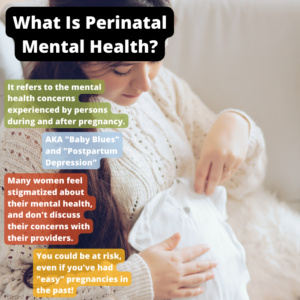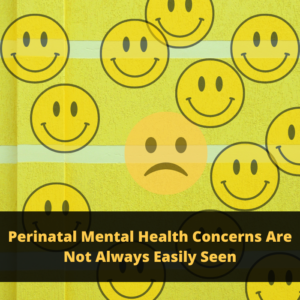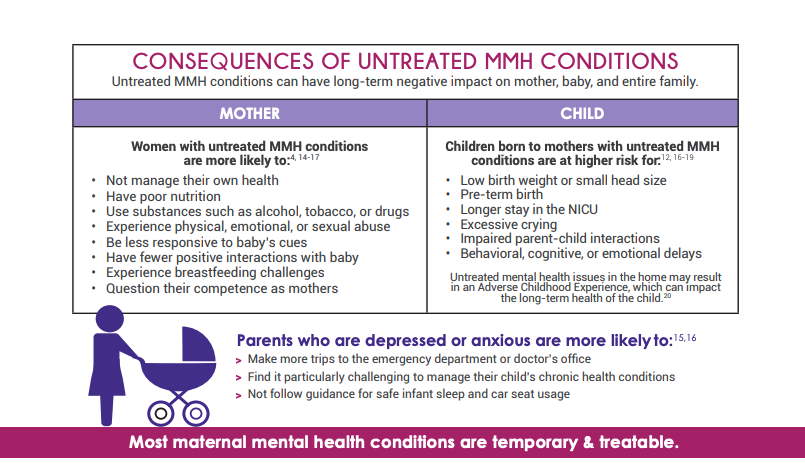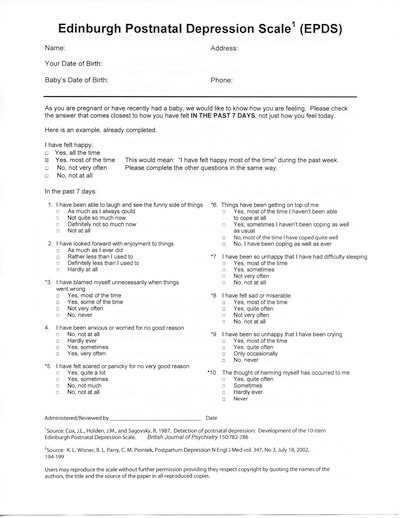Home > Perinatal Mental Health

Did you know that 1 in 7 mothers will experience perinatal depression? Most of them won't share their concerns with family or a healthcare provider. Don't let mothers suffer in silence!
As a focus area of the Mountain Plains Mental Health Technology Transfer Center, we are helping to shine a spotlight on perinatal and maternal mental health. Did you know that 75% of mothers who experience maternal mental health will go untreated? Mothers who experience perinatal mental health concerns are at more risk of depression and anxiety, which can affect not only their relationships with their children but also with their significant others. The ripple effects can have a far-reaching outcome on relationships, work, happiness, and overall life satisfaction. We want anyone struggling with perinatal mental health concerns to have a place they can turn to seek help and find those that support them.


Use your mouse to zoom in/out or click on the bracket square to enter fullscreen.
Don't ever let an opportunity to H.U.G. a mom pass you by! Ask her "HOW are you really doing?" Tell her "I UNDERSTAND how important your job is as a mother." Offer her your help by saying "I will GO with you to seek help." None of us should ever let a mother suffer in silence. So, ask yourself...have you given a mother a H.U.G. today?
HOW are they really doing? UNDERSTAND how important their job is. GO with them to seek help so they aren't alone.


The above infographic is from the Maternal Mental Health Leadership Alliance. They are a great resource and have many fact sheets about different topics surrounding the perinatal and maternal mental health categories. You can view these fact sheets by clicking here.

The EPDS is a set of ten screening questions that can indicate whether a parent has symptoms that are common in women with depression and anxiety during pregnancy and in the year following the birth of a child.
It is strongly recommended that this set of questions be completed with a health professional.
Click here or on the image to the left to view a downloadable PDF version of the EPDS scale.
In 2021, the Mountain Plains Mental Health Technology Transfer Center and the South Dakota Department of Health presented a two-hour training session on best practices for depression screening in perinatal populations. Screening for depression symptoms without established plans for follow-up interventions can create challenges and anxiety for providers working in a variety of settings. This training reviewed best practices when screening perinatal populations for depression, and when needed, how to implement a team-based response to patients expressing thoughts of suicide. This session also examined unique barriers experienced by perinatal persons when seeking care and discuss the importance of referral pathways for connecting individuals to care.
You can access the slide deck used for this presentation by clicking here. A recording of the presentation has also been made available and can be watched below.